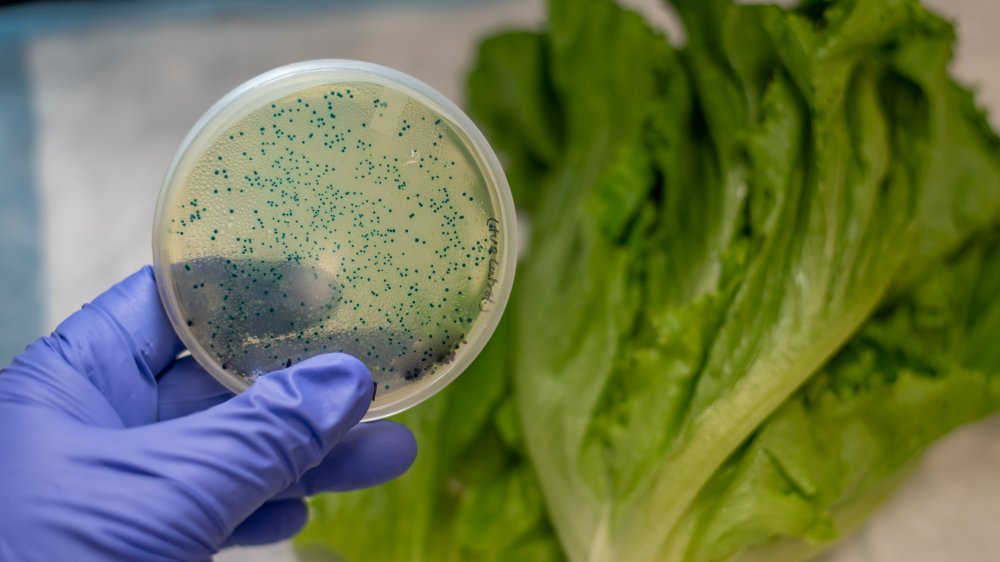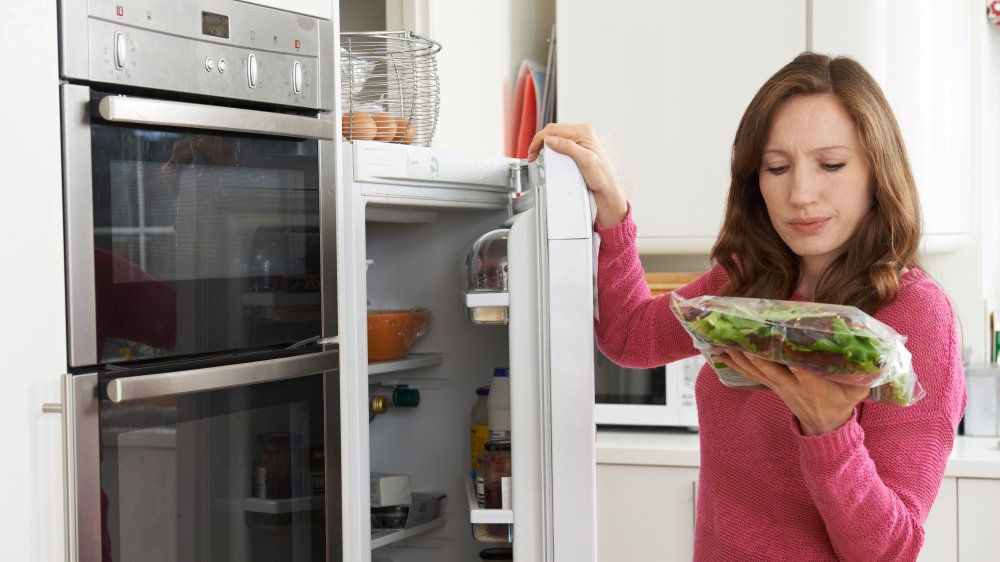What You Need To Know About The Massive Salad Recall
Hold up before you open up that ready-to-eat salad bowl, because there's a dangerous E. coli outbreak that you need to know about. The Centers for Disease Control and Prevention have released a statement that at least 17 people in eight states have become ill from E. coli over the last six weeks, dating from late September through early November (via Consumer Reports).
So far, all of the reports of sickness have come from Arizona, California, Colorado, Idaho, Maryland, Montana, Washington, and Wisconsin, and while nobody has died, at least seven people have been hospitalized. The particular strain of E. coli, code name O157:H7, is especially dangerous and has resulted in at least two people suffering a kind of kidney failure known as hemolytic uremic syndrome that's specifically associated with that strain of E. coli.
The CDC hasn't yet pinpointed the exact source that's making people sick, but romaine lettuce seems to be the likely culprit. E. coli was detected by the Maryland Department of Health in an unopened package of Ready Pac Foods Bistro Chicken Caesar Salad from a sick person's home. The salad was purchased from a Sam's Club store in Maryland.
So how much of this contaminated lettuce is out there, and how can you protect yourself?
What to do if your food is recalled
So far, more than 97,000 pounds of salad products have been recalled because of the possibility of E. coli contamination (via ABC News). The salad recall was issued by New Jersey company Missa Bay, LLC after the USDA classified it as a "high health risk." The CDC is recommending that people not eat the Ready Pac Foods Bistro Chicken Caesar Salad with a "Best By" date of October 31, but that isn't the only product that could be involved. Be sure you check out a full list of potentially-affected products here.
If any of the products on the list are in your fridge, you should most definitely not eat them and throw them away. E. coli is a seriously nasty germ, and while most cases clear up in a week, nobody wants to suffer through days of vomiting, stomach cramps, and bloody diarrhea (via CNN). It's best not to open or handle the recalled products, and make sure you wash your hands after disposing of it to avoid food poisoning (via Food Safety).
This is one case where it's definitely going to be better safe than sorry.

